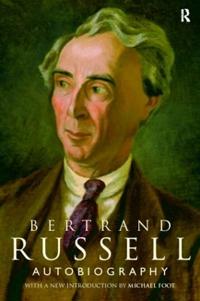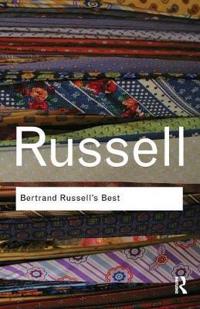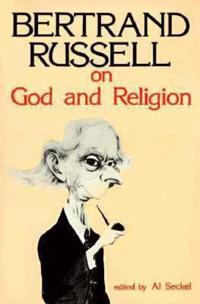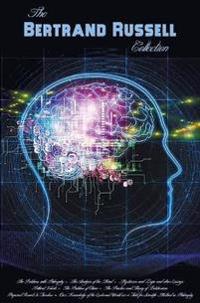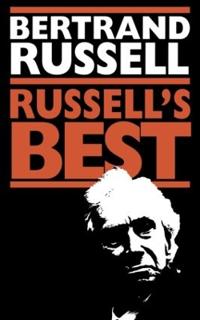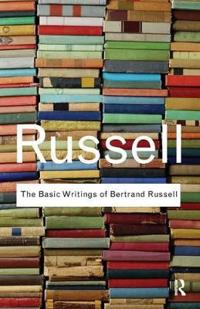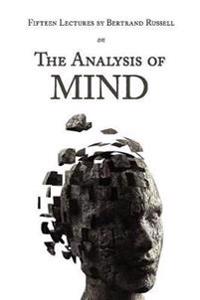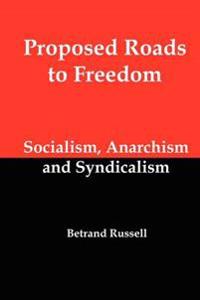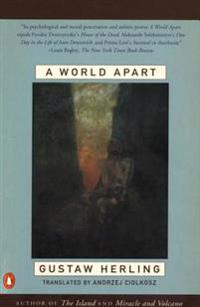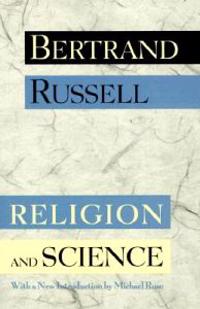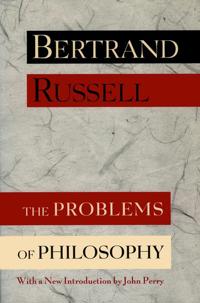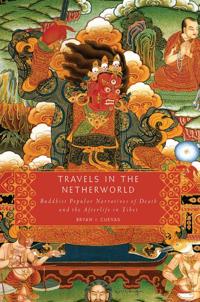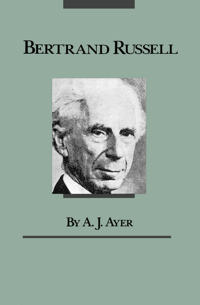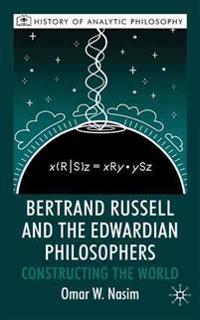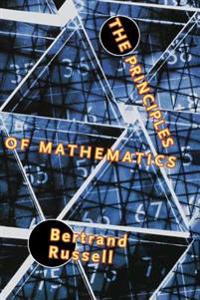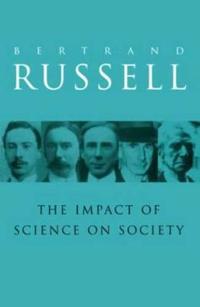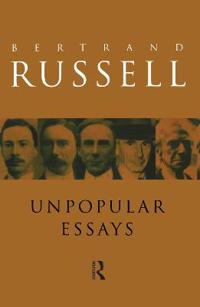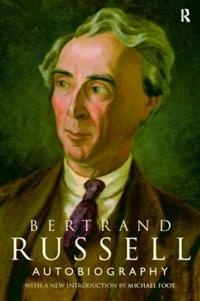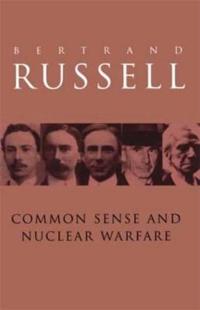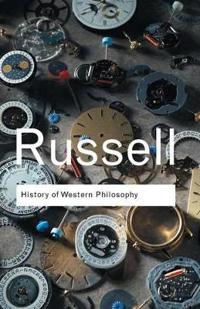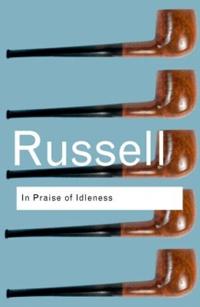Bertrand Russell Autobiography (Inbunden)
avBertrand Russell, Michael (INT) Foot, Bertrand Russell
ISBN: 9780415189859 - UTGIVEN: 1998-11Bertrand Russell was born in 1872 and died in 1970. One of the most influential figures of the twentieth century, he transformed philosophy and can lay claim to being one of the greatest philosophers of all time. He was a Nobel Prize winner for Literature and was imprisoned several times as a result[...]
Bertrand Russell's Best (Storpocket)
avBertrand Russell
ISBN: 9780415473583 - UTGIVEN: 200902Bertrand Russell is regarded as one of the twentieth century's greatest minds. Well-known for his profound knowledge and controversial approach to myriad of different issues and subjects such as sex, marriage, religion, education and politics, his prolific works also exhibit great intellectual wit a[...]
Bertrand Russell on God and Religion (Häftad)
avBertrand Russell
ISBN: 9780879753238 - UTGIVEN: 198602Al Seckel has rescued many of Bertrand Russell's best essays on religion, free thought, and nationalism from their resting places in obscure pamphlets, hard-to-find books, and out-of print periodicals to form a superb compilation.[...]
Bertrand Russell's Best (Pocket)
avBertran Russell
ISBN: 9780415094399 - UTGIVEN: 1981-10First published in 1981. Routledge is an imprint of Taylor & Francis, an informa company.
The Basic Writings of Bertrand Russell (Storpocket)
avBertrand Russell
ISBN: 9780415472388 - UTGIVEN: 200902"Basic Writings of Bertrand Russell".
Fifteen Lectures by Bertrand Russell on the Analysis of Mind (Häftad)
avBertrand Russell
ISBN: 9781604500875 - UTGIVEN: 200802Principia Mathematica - Volume Three (Häftad)
avNorth Whitehead Alfred North Whitehead, Russell Bertrand Russell
ISBN: 9781603861847 - UTGIVEN: 2009-02Proposed Roads to Freedom; Socialism, Anarchism and Syndicalism (Häftad)
avBertrand Russell, Betrand Russell
ISBN: 9781934941744 - UTGIVEN: 200907A World Apart: Imprisonment in a Soviet Labor Camp During World War II (Häftad)
avGustaw Herling, Bertrand Russell
ISBN: 9780140251845 - UTGIVEN: 1996-06The Problems of Philosophy (Häftad)
avBertrand Russell
ISBN: 9780192854230 - UTGIVEN: 200103'Is there any knowledge in the world which is so certain that no reasonable man could doubt it?' Philosophy is the attempt to answer such ultimate questions, not carelessly and dogmatically, as we might deal with them in ordinary life, but critically, after analysing how and why the questions arise [...]
Religion and Science (Häftad)
avBertrand Russell
ISBN: 9780195115512 - UTGIVEN: 199812In this timely work, Russell, philosopher, agnostic, mathematician, and renowned peace advocate, offers a brief yet insightful study of the conflicts between science and traditional religion during the last four centuries. Examining accounts in which scientific advances clashed with Christian doctri[...]
The Problems of Philosophy (Häftad)
avBertrand Russell
ISBN: 9780195115529 - UTGIVEN: 199708Bertrand Russell was one of the greatest logicians since Aristotle, and one of the most important philosophers of the past two hundred years. "The Problems of Philosophy, " one of the most popular works in Russell's prolific collection of writings, has become core reading in philosophy. Clear and ac[...]
Travels in the Netherworld (Häftad)
avBertrand Russell
ISBN: 9780199895557 - UTGIVEN: 201203In Travels in the Netherworld, Bryan J. Cuevas examines a fascinating but little-known genre of Tibetan narrative literature about the delok, ordinary men and women who claim to have died, traveled through hell, and then returned from the afterlife. These narratives enjoy audiences ranging from the [...]
Bertrand Russell (Häftad)
avA. J. Ayer
ISBN: 9780226033433 - UTGIVEN: 198803With extraordinary concision and clarity, A. J. Ayer gives an account of the major incidents of Bertrand Russell's life and an exposition of the whole range of his philosophy. "Ayer considers Russell to be, except possibly for Wittgenstein, the most influential philosopher of our time. In this book [...]
Bertrand Russell and the Edwardian Philosophers (Inbunden)
avOmar W. Nasim, Michael (EDT) Beaney, Omar W. Nasim
ISBN: 9780230205796 - UTGIVEN: 2008-12This book demonstrates the influence of an Edwardian 'controversy' on Russell's philosophy of the external world. It brings to our attention a debate that raged amongst Edwardian philosophers on issues of central significance to analytic philosophy before Bertrand Russell entered the discussion. In [...]
The Impact Of Science On Society (Pocket)
avBertrand Russell
ISBN: 9780415109062 - UTGIVEN: 1985-01First published in 1985. Routledge is an imprint of Taylor & Francis, an informa company.
Authority And The Individual (Pocket)
avBertrand Russell
ISBN: 9780415119566 - UTGIVEN: 1985-01-28In the first of the BBC's famous Reith Lectures, Russell tackles what is still one of the most hotly debated issues of the twentieth century: the conflict between law, order and authority and the rights of each individual man and woman.[...]
Unpopular Essays (Pocket)
avBertrand Russell
ISBN: 9780415119634 - UTGIVEN: 1996-10In this volume of essays Russell is concerned to combat, in one way or another, the growth of dogmatism, whether of the Left or of the Right, which has hitherto characterised our tragic century.[...]
The Autobiography (Häftad)
avBertrand Russell
ISBN: 9780415228626 - UTGIVEN: 200003Bertrand Russell was born in 1872 and died in 1970. One of the most influential figures of the twentieth century, he transformed philosophy and can lay claim to being one of the greatest philosophers of all time. He was a Nobel Prize winner for Literature and was imprisoned several times as a result[...]
Common Sense and Nuclear Warfare (Häftad)
avBertrand Russell
ISBN: 9780415249959 - UTGIVEN: 200104This title presents Bertrand Russell's keen insights into the threat of nuclear conflict, and his argument that the only way to end this threat is to end war itself. Written at the height of the Cold War, this book offers an understanding of Russell's involvement in the Campaign for Nuclear Disarmam[...]
Freedom And Organisation, 1814-1914 (Pocket)
avBertrand Russell
ISBN: 9780415250009 - UTGIVEN: 2001-04-12Starting with the defeat of Napoleon and the Congress of Vienna, this book is full of lively portraits of the main characters of the period, from Malthus, Mill and Bentham to Marx and Robert Owen. Russell also considers the founding of democracy in America and the struggle with slavery, bringing to [...]
History of Western Philosophy (Häftad)
avBertrand Russell
ISBN: 9780415325059 - UTGIVEN: 200402First published in 1946, History of Western Philosophy went on to become the best-selling philosophy book of the twentieth century. A dazzlingly ambitious project, it remains unchallenged to this day as the ultimate introduction to Western philosophy. Providing a sophisticated overview of the ideas [...]
In Praise of Idleness (Häftad)
avBertrand Russell
ISBN: 9780415325066 - UTGIVEN: 200402Intolerance and bigotry lie at the heart of all human suffering. So claims Bertrand Russell at the outset of In Praise of Idleness, a collection of essays in which he espouses the virtues of cool reflection and free enquiry; a voice of calm in a world of maddening unreason. From a devastating critiq[...]

